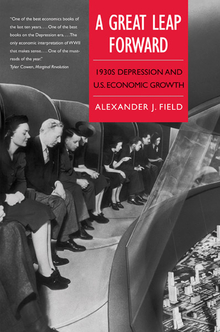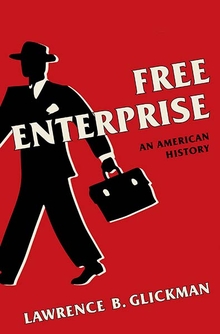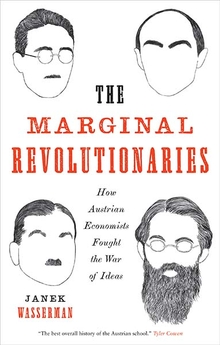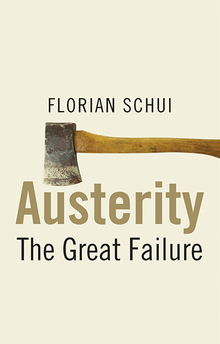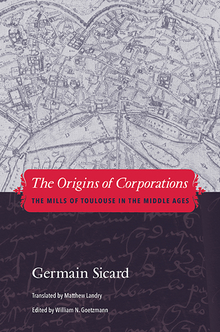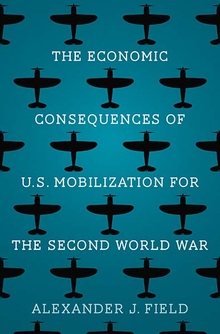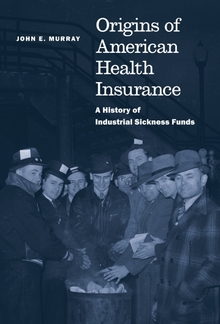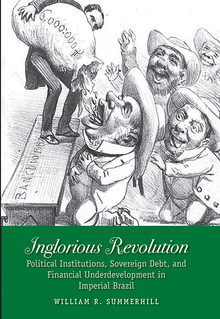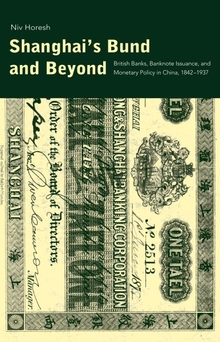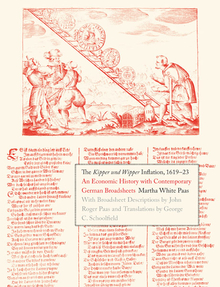A Great Leap Forward
WARNING
You are viewing an older version of the Yalebooks website. Please visit out new website with more updated information and a better user experience: https://www.yalebooks.com
1930s Depression and U.S. Economic Growth
Alexander J. Field
This bold re-examination of the history of U.S. economic growth is built around a novel claim, that productive capacity grew dramatically across the Depression years (1929-1941) and that this advance provided the foundation for the economic and military success of the United States during the Second World War as well as for the golden age (1948-1973) that followed.
Alexander J. Field takes a fresh look at growth data and concludes that, behind a backdrop of double-digit unemployment, the 1930s actually experienced very high rates of technological and organizational innovation, fueled by the maturing of a privately funded research and development system and the government-funded build-out of the country's surface road infrastructure. This significant new volume in the Yale Series in Economic and Financial History invites new discussion of the causes and consequences of productivity growth over the last century and a half and on our current prospects.
“[O]ne of the best economics books of the last ten years… one of the best books on the Depression era… one of the must-reads of the year.”—Tyler Cowan, Marginal Revolution
“Alex Field in this pathbreaking book overturns one myth after another about American economic history. His most important contribution is to unleash the saga of American economic growth from the simplistic story that investment automatically begets growth. He contrasts the 1920s, with high investment that ended in the collapse of a stock market bubble, with the 1930s when investment had collapsed and yet innovations continued and the world was changed forever. The 1930s ended with foundations of the standard of living lacking 10 years earlier, including streamlined autos with automatic transmissions, a vastly expanded highway network including the Bay Area bridges and the Hoover dam, diesel railroad locomotives replacing steam, and the transcendant revolution in the motion picture industry created by the 1939 productions of "Gone With the Wind" and "The Wizard of Oz." This book will change forever standard views of which decade's growth was most dynamic, and why.”—Robert J. Gordon, Northwestern University
“. . . adds new evidence for the productive role of public spending. It also changes our view of what happened in the American economy during the 1930s, when military investment was not a driving force.”—Fred Block, American Prospect
“Alex Field begins his provocative new book with the proposition that beneath the misery of the Great Depression, the 1930s were in fact “the most technologically progressive decade of the century.” This counterintuitive finding launches Field on a vigorous new interpretation of U.S. economic history in the twentieth century. His narrative is firmly rooted in the quantitative record, yet always accessible and full of surprises. Everyone concerned about the American economy (past and present) should read this book.”—Gavin Wright, Stanford University
“Eight decades later, the debacle of the Great Depression still fascinates many Americans – and for good reason. Alexander Field’s new book is a major contribution to our understanding of what went wrong and what the country did to fix it. His finding that the technology of American industry advanced unusually rapidly under the New Deal is an especially valuable corrective to a variety of views held by economists and the general public alike.”—Benjamin M. Friedman, Harvard University
“Field has written a fine, well-argued book on the history of productivity in the United States, with a focus on the Great Depression. Was the Depression caused by an adverse productivity shock? Or was rapid productivity in the 1930s caused by the Depression? Everyone interested in the Depression or in technology shocks as important short-run macroeconomic events should read this book.”—Peter Temin, Massachusetts Institute of Technology
“As we sit mired in the The Great Recession, Alexander Field’s exciting reappraisal of The Great Depression offers surprising solace. By showing the Great Depression was coupled with the most rapid technological advance in US history, he fundamentally recasts the history of the 1930s. But he also offers hope that our own depression likely will have no long run costs to the US economy.”—Gregory Clark, University of California, Davis
"... an exemplary demonstration of how careful and imaginative use of statistical information can revise deeply entrenched ideas about the past…. this book breaks new ground. Teachers of twentieth-century American history should read Field’s book for its totally convincing demolition of the folklore history idea that World War II was good for the American people because it ended the Great Depression and created the basis for the mass consumer prosperity that followed the war." —Ronald Edsforth, Journal of American History
Winner of the 2012 Alice Hanson Jones Biennial Prize, sponsored by the Economic History Association
Winner of the 2012 National Book Award in the Social Sciences, sponsored by Alpha Sigma Nu.
Selected as a 2011 Choice Outstanding Academic Title in the Economics category.
Publication Date: August 28, 2012
36 b/w illus.

